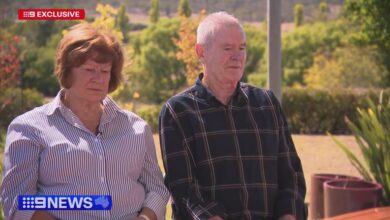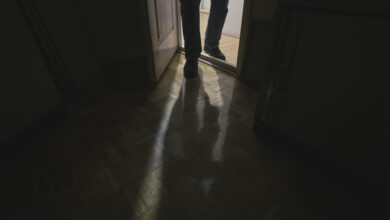Lessons learnt from disasters
Recent natural disasters have prompted a re-think of policies for those in community care, a conference will hear this week. Darragh O Keeffe reports.
The 2009 Black Saturday bushfires in Victoria prompted a re-think and change in approach to disaster management and supporting older people living in the community, a major provider says.
Rosemary Hogan, the general manager of client services for the Royal District Nursing Service (RDNS) will tell aged care providers in Sydney this week that the bushfires which killed 173 people brought about a change in the way Victorians viewed their relationship with some of the high risk areas in the state.
She said fortunately no RDNS staff or clients died in the fires, but many were affected directly or indirectly, and some staff lost their homes.
While RDNS already had policies and procedures in place, which were proven to have operated effectively on the day, the scale of the fires prompted a review and strengthening of those protocols.
Hogan said the royal commission into the bushfires highlighted the important role community care providers have to play, particularly concerning vulnerable older people living in high risk areas.
“The scale of it caused some rethinks generally,” said Hogan. “We worked very closely with the Department of Health and Ageing in terms of re-thinking the approach we took... I don’t think the community in general had appreciated until then just how catastrophic fires could be.”
Hogan’s presentation at the Aged & Community Services NSW/ACT conference this week will share some of the lessons RDNS has learned.
She said it was apparent that when it came to defending homes and having a fire plan, people were often not as prepared as they thought. Many of those living in high risk areas needed to re-think whether they should stay or go on so-called catastrophic days.
“For us it’s been challenging to do that ... We’ve got clients who are elderly, who struggle with their home maintenance but who haven’t really come to grips with the fact that when its coming up to those [catastrophic] days they really need to leave,” she said.
Following Black Saturday, RDNS has decided it will not send staff into high risk areas on catastrophic days, “because that sends a contradictory message to people that it’s alright to stay there on those days.”
Since the fires, Hogan said RDNS has done a lot of work with staff and clients to raise bushfire awareness. This then extended to include information about heat waves, which often precede fires, and the impact of these on older people.
This education subsequently extended to cover flooding, as the organisation has had clients affected by flash flooding in Victoria in the last 12 months, she said.
“I think all of these events have highlighted the need for us all to have a heightened sense of our environment, and the necessity of having good plans in place for when risks arise.”
Hogan said RDNS has enhanced its communication with staff, now sending them text messages to alert them of areas of flooding, and providing assistance in terms of directions when routes and roads are no longer accessible.
Some clients are also more engaged, calling RDNS and advising of inaccessible roads or driveways, for example, which is then passed back to the community worker.
The organisation has also helped its clients develop kits that contain information like contact phone numbers, should they need to leave their home in an emergency.
Email: [email protected]





